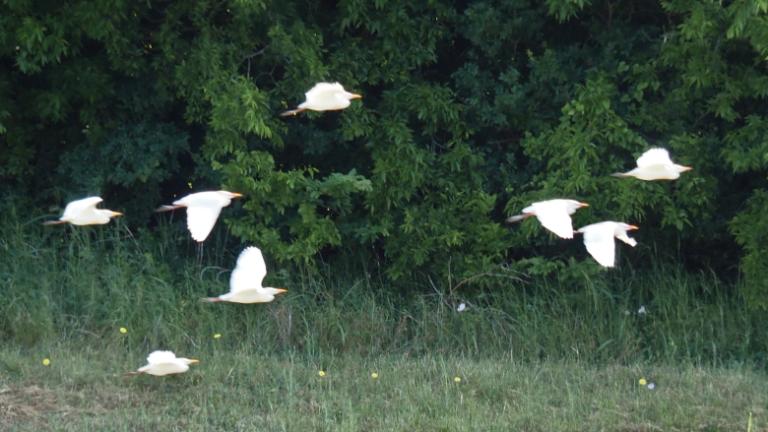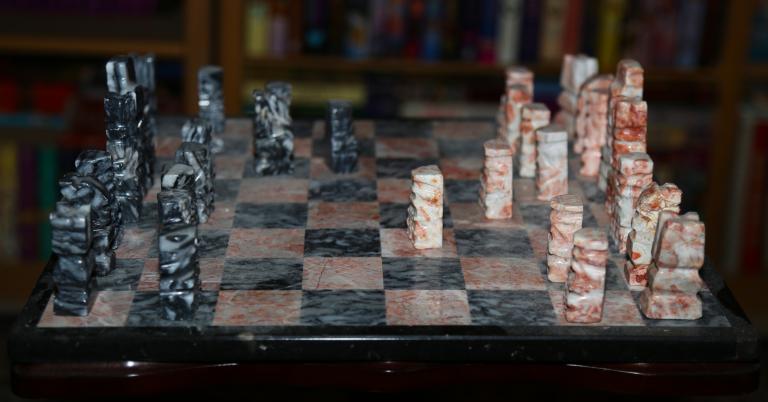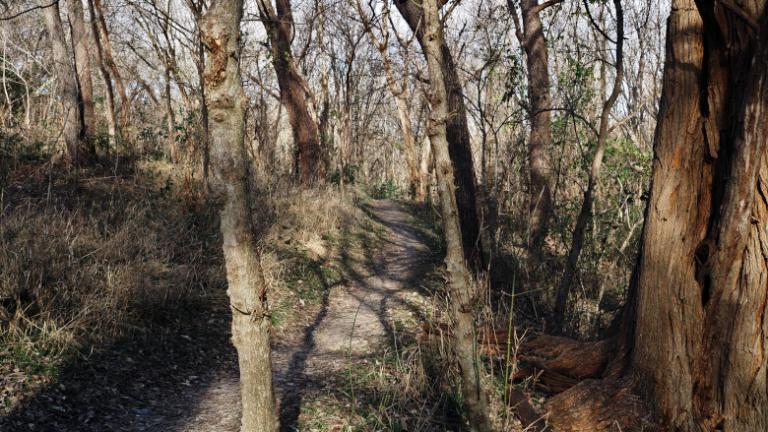Children often believe strange things, sometimes because they don’t have sufficient knowledge and experience and sometimes because adults tell them strange things. I was not an exception to this rule. There some things I look back on with amusement and other things I look back on with dismay and regret.
But there are some things I believed as a small child that I still believe today, or in one case that I believe again.
1. Life isn’t fair
Children know that life isn’t fair – and that’s before we get to kids whining “that’s not fair!” in response to something they just don’t like. Even small children see that some people are rich and some are poor. Some are healthy and some are sick. Some are strong and some are weak. They may not have the experience and depth to understand how much unfairness is the randomness of Nature and how much is human injustice, but it’s obvious that life isn’t fair.
And then something happens on the way to adulthood. Those with more decide that since things are good for them, they must be fair. Or they’re so used to playing by the rules that they never consider that the rules are inherently unfair. Or they recognize that while the rules aren’t fair to them, they’re less fair to others and they’re afraid of falling even further down the social hierarchy.
And so they ignore what they see and insist that life is fair, that if you just work hard and obey the law everything will be fine, and if it doesn’t it’s your own fault.
They’re lying to themselves.
I knew life wasn’t fair when I was a small child and I’ve never seen any indication that it is.
2. Life should be fair
Many of the adults who don’t insist that life is fair are quick to scream “life’s not fair” as though there was nothing that could be done about it. What they’re really saying is “Quit bothering me and get back to work.”
Why don’t we make life fair?
The fundamentalists of my childhood said life can’t be fair because of original sin – humans are inherently evil. Then others said life can’t be fair because of evolution – humans are inherently selfish. I find both of those ideas to be weak excuses.
What is fair is a matter of opinion, of values, and of political philosophy. A libertarian has a different conception of fairness than a socialist… and the older I get, the more socialist I become. At the least, making life fair would mean 1) the impact of the randomness of life is minimized to the greatest extent possible, and 2) there is a floor beneath which no one is allowed to fall, no matter how badly they screw up.
I thought we should make life fair when I was a small child. I still do.
We can’t make life perfectly fair, but we could make it far more fair than it is.
We choose not to.
3. Children aren’t property
Even as a small child, I recognized that I was dependent on my parents: physically, financially, developmentally. For the most part my parents did a good job with that, although there were notable exceptions, including some with severe consequences. And even I heard the phrase “no child of mine is ever going to (fill in the blank)…” as though I was their property to control as they saw fit.
There is a balance to be struck – both philosophically and practically – between the rights of parents to be free from interference in family affairs and the rights of children to be safe, healthy, and educated, and to be and become who they are and who they want to be. Parents – and the politicians who enable them – who beat and humiliate kids, who withhold medical care (including reproductive care), who try to teach propaganda instead of real history (Ron DeSantis, I’m looking at you), who refuse to support LGBTQ kids, and who try to force them into becoming copies of themselves instead of letting them be who they are do children and the world a great injustice and need to be stopped.
Because children are people, not property.
4. Figure out the rules, then play the game well
There is the world as it should be and there is the world as it is. I learned very quickly that the better I understood the world as it is, the easier and more successfully I could navigate it.
Board games were very popular when I was a kid. I would read the rules, calculate the odds, and come up with strategies to win. That didn’t always work, but it helped. What I learned playing games carried over into real life.
I’ve never been tested for autism, and my friends who have tell me I’m fairly neurotypical. But when neurodivergent people talk about how “the rules” aren’t designed for them and make life difficult for them, I generally agree with them – often from first-hand experience. But life has been easier when I’ve been able to either exploit the rules or to work around them.
To this, I would add something I learned as an adult: break rules on purpose. Some rules are unjust or simply unhelpful and you’re better off ignoring them. But that should be a conscious decision, not a mindless reaction that may bring serious consequences.
Is it contradictory to argue that we should change the system and also that we should work the system as shrewdly as possible? A purist would say it is, but I’ve been a pragmatist since childhood. I’ve always tried to make things as good as possible in the present, but also work toward a better future for myself and for the world at large.
Modern life is a game and you’ll do better if you learn the rules, how to use them to your advantage, and when to break them.
5. Not making mistakes is important
I was a perfectionist as a child and I still am as an adult. I want to get it right and get it right every time. That can be a frustrating way to live.
It’s also a helpful way to live.
“Don’t be afraid to make a mistake” is a powerful but dangerous idea. If you’re trying to learn something new, you will make mistakes. But making mistakes in a classroom or other controlled environment is one thing. Making mistakes in life is quite another.
I hate to use the p-word, but encouraging people to “take risks!” is incredibly privileged. What happens if you fail? Rich children can fail over and over again and never suffer any serious consequences. Middle class children who fail usually get one or two second chances. Poor children have to live virtually mistake-free to escape poverty – and to stay out of jail.
We are all human and to be human is to make mistakes. Our society needs to be more compassionate with those who make mistakes, including those who make them repeatedly. But this isn’t about society – this is about you.
Avoid “unforced errors,” take risks mindfully, and make as few mistakes as possible.
6. You can go anywhere if you find the right path
Growing up in a rural environment was both a blessing and a curse. It left me isolated for much of my childhood, but it also gave me the opportunity to explore wild places. And I did.
Our woods weren’t that big, and I learned that if I got lost (which didn’t happen often, but did occasionally) if I would just keep going eventually I’d come to some place I recognized and I could make my way home. And then I could take the same route again and mark a path for future use.
I sometimes took the same approach after I started driving. I grew up in the years before GPS, in a place where maps were often either unavailable or outdated. But by heading in a general direction making good guesses, I could usually get where I wanted to go.
This same approach has helped in wider life. When I’ve moved in the direction of what I thought I wanted, I’ve gotten closer to it, and in the process I learned how I could move closer still. Or occasionally, I figured out that wasn’t what I wanted and I changed directions (see “not making mistakes”).
There are places I couldn’t reach. Some I didn’t want badly enough to do what was necessary to get there. Others were simply blocked to me – I wasn’t born with the necessary skills and/or resources. But I’ve kept moving, I’m generally happy with where I’ve gone, and I look forward to where I’m going in the future.
7. There are Gods
I believed there was one God when I was a kid, because that’s what I was taught… though the whole Trinity thing sounded like three to me. That was one of those questions I wasn’t allowed to ask, or rather, that I was allowed to ask but wasn’t allowed to challenge the answers I got when I found them unsatisfactory.
As I started thinking about what I was being taught, I realized I couldn’t honestly believe it. Theodicy breaks monotheism: either the God of the monotheists is not all powerful, or he is not all good. And that’s before we get to the impossibility of “biblical inerrancy” and other foundations of fundamentalism.
But for all that, I never seriously considered atheism. Something deep inside whispered “there’s more.”
I tried to be a liberal Christian, but while that’s an honorable path it wasn’t the path for me. My journey took me from monotheism to pantheism to polytheism, which is the best match for the world as I actually experience it.
My beliefs about the number of Gods have changed, but my belief in the existence of the Divine has not.
8. Magic is real
Most children intuitively believe in magic. And then it’s educated out of them – and shamed out of them. Grow up, quit listening to your imagination, and get to work.
I have to be honest: that happened to me too. My rebellion against fundamentalist Christianity took the form of extreme rationalism, not magic and witchcraft. As a teenager I assumed that magic simply didn’t exist, and so there’s a two-plus decade gap in my magical beliefs and practices.
I was in my early 30s when I realized that yes, magic is real. I have a theory as to how and why it works, but after 30 years of practicing magic, I’ve seen too many results to doubt that yes, it is real.
I’m envious (in a healthy “I’m happy for you” way) of the kids who have options and opportunities I never had. I wish I had been able to spend my teens and 20s studying magic, but I wasn’t. But I can now.
And I do.





















